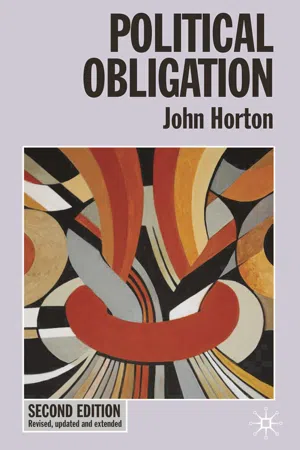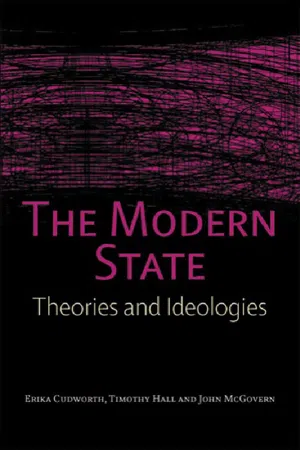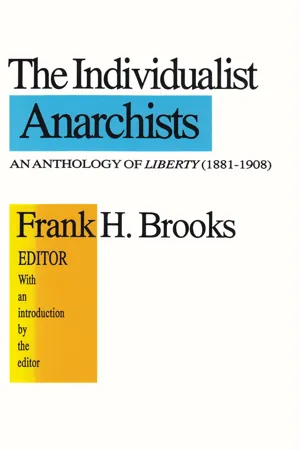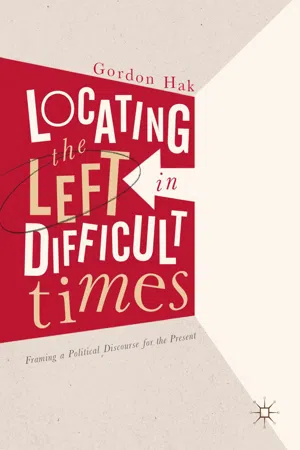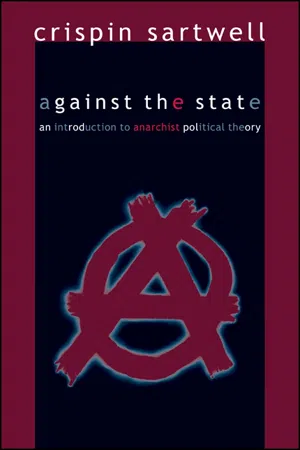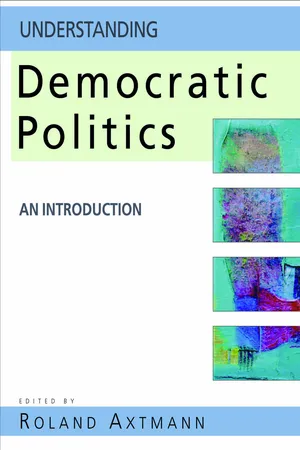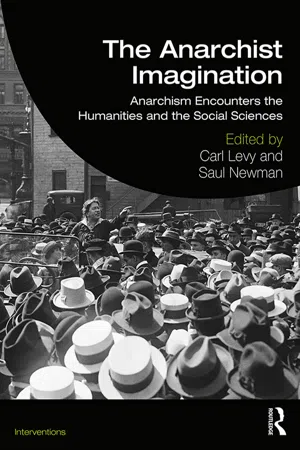Politics & International Relations
Anarcho-Communism
Anarcho-communism is a political theory that advocates for the abolition of the state and capitalism, and the establishment of a stateless, classless society based on common ownership and democratic control of the means of production. It combines anarchist principles of decentralization and individual freedom with communist principles of collective ownership and distribution of resources.
Written by Perlego with AI-assistance
Related key terms
1 of 5
10 Key excerpts on "Anarcho-Communism"
- eBook - PDF
- John Horton(Author)
- 2017(Publication Date)
- Red Globe Press(Publisher)
This is a point to which we shall return later. While the spirit informing communal anarchism is very different from that of individualist anarchism, both share a general rejection of coercion (except under very specific and limited circumstances) and a desire to base social organization upon a principle of free association and some notion of equality. Communal anarchists are inclined to a more benign and cooperative conception of human nature – they believe that people will naturally join together to form groups to coordinate economic activ-ities and provide mutual aid and support for each other. People are not the atomistic bearers of natural rights so much as mutually concerned and interrelated, but independent-minded, individuals. In particular, communal anarchists reject individualistic anarchists’ views about the sanctity of private property. Nor is communal anarchism neglectful of, Anarchism: Political and Philosophical 117 or at all embarrassed by, the fact that individuals grow up within soci-eties and are socialized accordingly. This has two aspects for communal anarchists. On the one hand, it is the principal source of nationalism and the ‘false consciousness’ that explains people’s attachment to their state and their failure to appreciate the real situation in which they find them-selves in the modern state. On the other hand, it also offers hope for the future, for if people are brought up in accordance with their true nature, then this will make an anarchist community a genuine possibility. For communal anarchists, an authentic society is seen as a shifting series of common practices and cooperative arrangements to which people volun-tarily subscribe and which are subject to continuous reaffirmation and re-creation: relations are basically harmonious; although, as mentioned earlier, this does not preclude either diversity or non class-based disagreement and conflict. - eBook - PDF
The Political Thought of Jacques Rancière
Creating Equality
- Todd May(Author)
- 2008(Publication Date)
- EUP(Publisher)
It is often combined with a defense of free-market capitalism, capitalism unfettered. The view we will focus on here, which is the one most closely associated with the term anarchism, is what the greatest of the “classical” anarchists, Peter 82 The Political Thought of Jacques Rancière Kropotkin, calls communist anarchism . Communist anarchism is the major tendency of anarchism, which Kropotkin defines generally in a famous passage as “the name given to a principle or theory of life and conduct under which society is conceived without government – harmony in such a society being obtained, not by submission to law, or by obedience to any authority, but by free agreements concluded between various groups, territorial and professional, freely constituted for the sake of production and consumption, as also for the satisfaction of the infinite variety of needs and aspirations of a civilized being.” 11 Under the rubric of communist anarchism would fall not only Kropotkin, but his predecessors William Godwin, Pierre-Joseph Proudhon, and Mikhail Bakunin. In addition, two of the more promi-nent recent thinkers who align themselves most closely with anarchist thought – Murray Bookchin and Colin Ward – are communist anar-chists. How might we characterize the communist anarchist tradition, and what are the threads that tie it to the democratic politics we are articulating here? This is the question that will occupy us for the remainder of the chapter. To approach this tradition, we can return to Kropotkin’s definition of anarchism. It is intended to cover both individualist and commu-nist anarchism. In order to do so, its central appeal is to the concept of liberty: free agreements, freely constituted. There is nothing here an individualist anarchist would dispute. What, then, would distin-guish individualist from communist anarchism? For the communist anarchist, there is not only a commitment to liberty, but also and as deeply a commitment to equality. - eBook - PDF
The Modern State
Theories and Ideologies
- Erika Cudworth, Timothy Hall, John McGovern(Authors)
- 2020(Publication Date)
- EUP(Publisher)
In sharp contrast, ‘anarcho-capitalism’ (Miller 1984) or ‘individu-alist anarchism’, exemplified by the work of Murray Rothbard Anarchism: the Politics of Anti-Statism 139 (1978), is an extreme form of liberalism based on the absolute sov-ereignty of the individual (also Nozick 1974: Part 1). In the nine-teenth century an important advocate of such individualism was Max Stirner (1845), whose suggestion that we are all (essentially) self-interested and self-seeking has been an element of conservative and liberal approaches (see Chapter 10). What is often referred to as ‘classical anarchism’ however, was a left-orientated response to nineteenth-century developments, specifically the processes of industrialisation and new forms of labour relations, the increasing powers of the state and a concern with the escalation of the scale of warfare. Anarchism as an organ-ised political force stemmed from the debates between followers of Marx and those of Bakunin in the First International. Both ‘anar-chists’ and ‘Marxists’ agreed on the exploitative nature of capital-ism, but differed on the nature of the state itself. Whereas the predominant view of Marx and Engels was a form of class instru-mentalism, anarchists argued that the structure and actions of the state cannot be read off as either functional for the logic of the cap-italist system, or as a direct instrument of class interests. This said, there are anarchists who have argued for the strong commonalities between Marxian and anarchist theory. Daniel Guérin (1989: 118) considers that there are grounds for fertile theoretical relations between Anarcho-Communism and ‘authentic Marxism’. In my view, there are five elements which make anarchist state theorising distinctive: the conception of human nature; an understanding of social contract; a broad notion of social domination; the articula-tion of interest by the state; and the possibility of the state as an agent of political change. - eBook - PDF
- Alexander Moseley(Author)
- 2007(Publication Date)
- Continuum(Publisher)
Here we need to note some very important splits that emerge in anarchist thinking. Some are champions of particular political or religious doctrines that others would claim to be restrictive and illi-beral – early anarchists were often very religious and were striving to succeed in separating the Church from the state’s encroachments. While such sectarian ideologies may be identified as ‘Christian’ or ‘Jewish anarchism’, religious communities need to pursue a political philosophy as advised by clerics, hence their particular doctrines can be subsumed under one of the following splits. Firstly, anarcho-communists extol the group – society – as being the end to which all will direct and live their lives in a communal idyll. All property will be held in common, and therefore all acquis-itive or egotistical drives will disappear. The removal of the state will allow people to follow their natural inclination to be mutually coop-erative and sociable, enjoying the benefits of what Kropotkin called ‘mutual aid’. Secondly, anarcho-libertarians proclaim that private property and the resulting market order will provide all that is necessary in both rule-formation and the security of the individual. Although individ-ualist in temperament, the anarcho-libertarian does not reject the sociability of man but asserts primarily that private property and market exchange are inevitable under freedom and, secondly, that for them to be abolished would require a persistent level of coercion and violence that the anarchist must logically reject: that is, anarcho-communists could not practically reject private property as it will inevitably evolve, even if society were forced through revolution to begin again without private ownership. - eBook - ePub
The Individualist Anarchists
Anthology of Liberty, 1881-1908
- Frank H. Brooks(Author)
- 2017(Publication Date)
- Routledge(Publisher)
Anarchism is egoism; Communism is altruism. (I do not use these terms here in the sense of the evolutionary school of ethics, but in the sense of orthodox moralists.) Herein is the weak point of Communism. It is the same old superstition that has propped up all the theologies and all the tyrannies,the "duty" of the individual to sacrifice himself to God, the State, the community, the "cause" of anything, a superstition that always makes for tyranny. This idea, whether under Theocracy or Communism, will result in the same thing—always authority. Communism, notwithstanding its pretensions to be scientific, is purely religious and sentimental. In so far as it is sentimental only it is powerless for evil, though a terrible hindrance to true development. But in so far as it is religious it is dangerous.The difference between Communism and Anarchy is plainly observable in their methods. Abolish the State (by discrediting the idea of authority)—that bulwark of the robber system, the fortress of tyranny, says the Anarchist. Abolish private property, the source of all evil and injustice, the parent of the State, says the Communist. And he attempts to be scientific, parades the historical-development theory, and ridicules what he calls the Anarchists' folly of fighting effects rather than the cause, private property. Abolish private property by instituting compulsory Communism, and the State will go, he says; having no function to perform, it must die of itself.Now Anarchists are not opposed to private property, except it is defined as the sum of legal privilege, but we may go on with the argument. Shall we abolish the State, or private property? The Anarchist knows very well that the present State is an historical development, that it is simply the tool of the property-owning class; he knows that primitive accumulation began through robbery bold and daring, and that the freebooters then organized the State in its present form for their own self-preservation. But how did the small property class manage to maintain the State against the large non-property class? The property class never did all the fighting (once they did lead the fighters; now they do not, but hire leaders); they had to have an immense army of the propertyless to do the unskilled work in the fighting. How did they get the consent of the governed? How did they manoeuvre "the people" into fighting for property instead of against property? Why are they fighting for property instead of for themselves now? It is no use shutting our eyes to the fact that they do so. Let John Most or Lum or Louise Michel13 start the fighting for Communism tomorrow, and who will fight against them? The propertyless. And how has this come about? Simply by teaching the idea that is inherent in Communism, or patriotism, or governmentalism, or religion of any sort,—enunciation, altruism, duty, sacrifice to the particular spook then uppermost: God, country, cause or principle. Ask any ignorant soldier why he fights. Is it the German soldier's interest to kill the French soldier, or vice versa? Is it to the personal interest of the Jingo-drunk English volunteer to be sent to Asia or Africa to maintain British supremacy? Does the young American citizen, who is ready to shoulder a musket to put down Anarchism or Socialism, reason it out that it is for his personal interest to risk being blown up with dynamite bombs? Are any of these people self-conscious egoists? Not one. They are all altruists, ready to self-sacrifice. The property class know well that spooks are as necessary as the police to support the State, and that dissolving spooks is more dangerous to them than killing policemen, and so the preaching class, ministers and politicians, are well paid for teaching man's duty to God and the citizen's duty to the State. "Society must be preserved," howled Grinnell;14h e did not say, "the property of my clients, the Citizens' League, must be protected": that would have been too thin; even a bourgeois j - eBook - PDF
Locating the Left in Difficult Times
Framing a Political Discourse for the Present
- Gordon Hak(Author)
- 2017(Publication Date)
- Palgrave Macmillan(Publisher)
187 David Graeber, an academic and anarchist activist, offers a definition of anarchism: The easiest way to explain anarchism… is to say that it is a political move- ment that aims to bring about a genuinely free society—that defines a ‘Free society’ as one where humans only enter those kinds of relations with one another that would not have to be enforced by the constant threat of violence .… Anarchism thus envisions a world based on equality and soli- darity, in which human beings would be free to associate with one another to pursue an endless variety of visions, projects, and conceptions of what they find valuable in life. When people ask me what sorts of organization could exist in anarchist society, I always answer: any form of organization one can imagine, and probably many we presently can’t, with only one proviso—they would be limited to ones that could exist without anyone having the ability, at any point, to call on armed men to show up and say ‘I don’t care what you have to say about this; shut up and do what you’re told.’ 1 The anarchist discourse was very evident in the anti-globalization, anti-corporate, and Occupy movements of recent decades. From the anarchist vantage point, political parties and unions are straitjackets, top- down institutions ruled by self-serving, established elites pushing old nostrums from the 1960s and 1970s. International binding trade agree- ments that are concocted by corporations and governments put a stran- glehold on development, increase poverty, damage the environment, CHAPTER 14 An Anarchist Prospectus, Communism Revisited, a Dash of Populism © The Author(s) 2017 G. Hak, Locating the Left in Difficult Times, DOI 10.1007/978-3-319-54343-7_14 188 G. HAK and kill local initiatives. The state, even when progressive, offers little in the way of jobs and financial support, and much in the way of regu- lation. - eBook - PDF
Against the State
An Introduction to Anarchist Political Theory
- Crispin Sartwell(Author)
- 2014(Publication Date)
- SUNY Press(Publisher)
It calls for nonexploitive against the state 14 cooperative economies and affirms the possibilities of love and generosity between individuals. Its basic political commitment is what Warren called “self- sovereignty,” an idea that developed out of two interlocked sources: the Protes- tant Reformation in its radical aspects and the American abolitionist move- ment. The former entailed liberty of conscience: it left to each person that person’s relation to god, and it made individual conscience the only legitimate regulator of human action.The latter had sudden radical entailments: if no one could legitimately own another, then each person was the owner of herself.At its most metaphysical, the tradition with which I associate myself makes the apparently paradoxical claims that individuals are sovereign over themselves and that individuals consist of their relations: to other human beings, to the natural world, and to god (if any).This metaphysics of the individual in the universe is an image of an ideal political situation. I conclude this book with an outline intended to give a sense of where these ideas will end up taking us. introduction 15 I Anarchism, as I am using the term here, refers to the view that all forms of human association ought to be voluntary.If it is true, as against some varieties of social contract theory, that what is known as the political state is not a voluntary association but in fact rests on coercion and is destruc- tive or limiting of the liberties of its subjects, then anarchism in my sense entails that the political state is never legitimate or, as I will put it equivalently, that state power is not morally justified. This leaves us with a number of key terms to define before we go forward: voluntary, state, coercion, legitimacy. A number of other terms arise in the task of defining or understanding those, including sovereignty, nation, person, and others. - eBook - PDF
Understanding Democratic Politics
An Introduction
- Roland Axtmann(Author)
- 2003(Publication Date)
- SAGE Publications Ltd(Publisher)
26 Anarchism and Democracy Patricia Clark and Sharif Gemie WHAT IS ANARCHISM? For most of human history people have lived without the state. Indeed, the modern nation-state is a comparatively recent invention, born with the emergence of capitalism. Lib-eral democracy is one reaction to these evolu-tions; anarchism, developing at about the same time as liberalism, is a second, radically different reaction. Anarchists make a distinction between society and the state. Society is natural: peo-ple are social beings and habitually live in communities. Anarchists see the state, how-ever, as an oppressive entity which is set up over society and which usurps functions that properly belong to autonomous communities and individuals. Rather than allowing people to flourish and develop their own ways of meeting challenges and fulfilling needs, the state is coercive and asserts its monopoly over law-making and government, punishing those who refuse its dictates and condition-ing citizens into quiescence and obedience. Therefore, anarchists want to abolish the state and replace it with autonomous, small-scale communities which empower and liberate citizens, so that their cooperative and creative faculties flourish in a non-hierarchical setting. While anarchists have been less successful than Marxists in developing their political philosophies, their various initiatives and campaigns have been sustained by common political cultures and political ideals. These have certainly varied in their applications from century to century and country to coun-try, but there remains an irreducible core of anarchist practice that marks it out from other political movements. At the heart of anarchism is a deep commitment to a full, demanding interpretation of democratic prac-tice. Indeed, it is perhaps this combination of insurrectionary zeal and democratic practice which has made anarchism so difficult for academic political philosophers to categorize and therefore so tempting to ignore. - Z. Kazmi(Author)
- 2012(Publication Date)
- Palgrave Macmillan(Publisher)
1 I argue that the neglect of the domestic analogy on the rare occasions anarchist ideas have entered into IR in favor of the dominant, heavily normative, approach common to their wider treatment in political thought sets limits on the contribution anarchism stands to make to the more traditional concerns of state-centric international theory. To exemplify this and orient the rest of the study toward this approach to anarchist ideas in IR, the chapter closes with a short Revisiting Anarchism ● 19 illustration of what I have termed an “anarchical social contract” in aspects of the thought of Pierre-Joseph Proudhon and its relevance to theorizing the anarchistic and contractarian bases of interstate relations. The Anarchists The origins of anarchism have been traced back to antiquity and beyond by those who regard it as a tradition of social and political thought with a distinct, if varied, intellectual lineage. 2 The etymology of the term, anarchy, originates in the Greek word (in its Latin form) ( anarchia), meaning “with- out a leader” and understood more commonly as the condition of being “without a ruler.” From an anthropological perspective, however, acephalous societies stretch back much further in time and today have also been the subject of various studies of actually existing primitive anarchic communi- ties. M. Fortes and E. E Evans-Pritchard’s study of primitive stateless soci- eties in Africa, for example, has pointed to the impressive degree of social solidarity that exists in such communities.- eBook - PDF
The Anarchist Imagination
Anarchism Encounters the Humanities and the Social Sciences
- Carl Levy, Saul Newman(Authors)
- 2019(Publication Date)
- Routledge(Publisher)
3 Contesting the state of nature Anarchism and International Relations 1 Zaheer Kazmi International Relations (IR) shares an intimate though unusual relationship to anar-chism. Anarchy is a foundational concept in IR yet anarchism has been ignored almost entirely by IR scholars. IR also holds a unique position among the academic disciplines under discussion in this volume as, unlike them, much of the subject ’ s distinctiveness has derived from its pivotal focus on anarchy as the fundamental condition of international relations. 2 Moreover, its treatment of anarchy has been peculiar to the discipline, acting more as a ‘ state of nature ’ metaphor, which distinguishes the international from the domestic sphere, than a global moral vision. In IR theory, anarchy thus functions chie fl y as a descriptive category which denotes the absence above states of the overarching political authority which obtains within them, rather than a prescription about how the world should be ordered. It is perhaps no surprise, therefore, that the emergent sub-dis-cipline of international political theory, in its normative aspect, has been more receptive to activist anarchist scholarship than the traditional core of IR theory. 3 In light of the ambivalence of anarchy in IR, however, as both an analytic and normative category, exploring anarchism in IR can also bring into view the deeper relationship between theory and ideology in academic inquiry. In IR, an anarchist way of seeing is not neces-sarily the same thing as seeing like an anarchist. Academic volumes on anarchism are, almost without exception and despite the vitality of the debates they exhibit, platforms for advocating anarchism by those sym-pathetic to it as an ideology or social movement. 4 This is not my aim in this chapter which, in this respect, lies outside the bounded discourse of what has come to be termed ‘ anarchist studies ’ .
Index pages curate the most relevant extracts from our library of academic textbooks. They’ve been created using an in-house natural language model (NLM), each adding context and meaning to key research topics.
